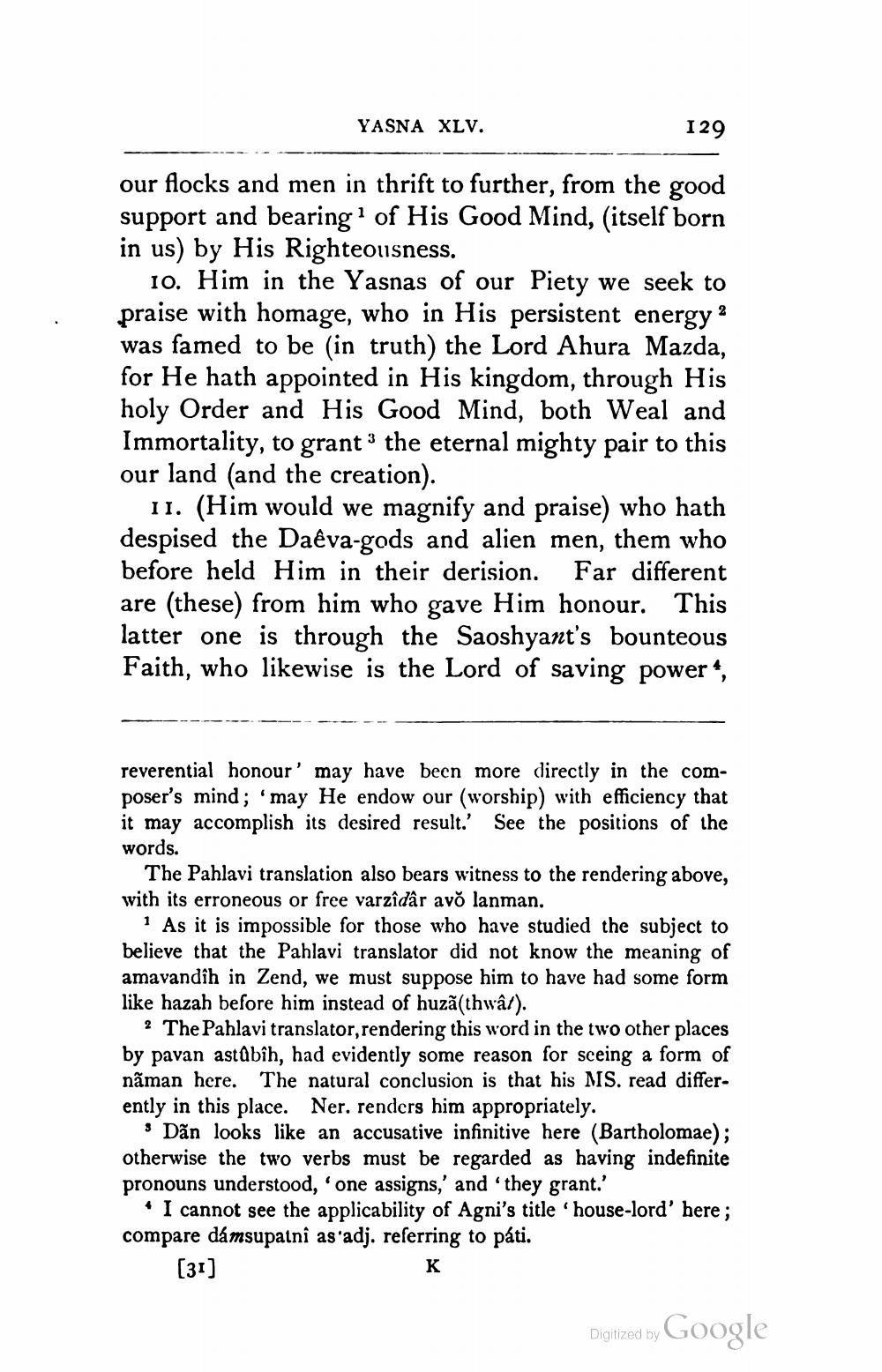________________
YASNA XLV.
129
our flocks and men in thrift to further, from the good support and bearing of His Good Mind, (itself born in us) by His Righteousness.
10. Him in the Yasnas of our Piety we seek to praise with homage, who in His persistent energy a was famed to be in truth) the Lord Ahura Mazda, for He hath appointed in His kingdom, through His holy Order and His Good Mind, both Weal and Immortality, to grant " the eternal mighty pair to this our land (and the creation).
11. (Him would we magnify and praise) who hath despised the Daêva-gods and alien men, them who before held Him in their derision. Far different are (these) from him who gave Him honour. This latter one is through the Saoshyant's bounteous Faith, who likewise is the Lord of saving power“,
reverential honour' may have been more directly in the composer's mind; 'may He endow our worship with efficiency that it may accomplish its desired result.' See the positions of the words.
The Pahlavi translation also bears witness to the rendering above, with its erroneous or free varzidâr avo lanman.
1 As it is impossible for those who have studied the subject to believe that the Pahlavi translator did not know the meaning of amavandih in Zend, we must suppose him to have had some form like hazah before him instead of huză(thwâl).
2 The Pahlavi translator, rendering this word in the two other places by pavan astâbîh, had evidently some reason for seeing a form of nãman here. The natural conclusion is that his MS. read differently in this place. Ner. renders him appropriately.
9 Dãn looks like an accusative infinitive here (Bartholomae); otherwise the two verbs must be regarded as having indefinite pronouns understood, 'one assigns,' and 'they grant.'
I cannot see the applicability of Agni's title house-lord' here; compare dámsupatni as'adj. referring to páti.
[31]
к
Digitized by
Digitized by Google




